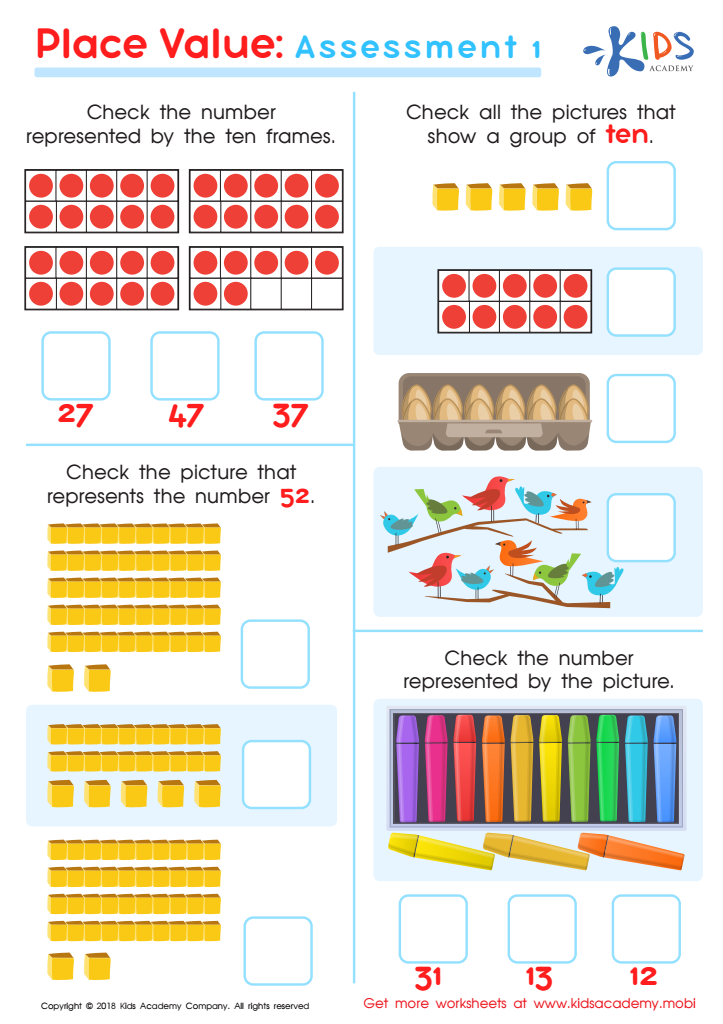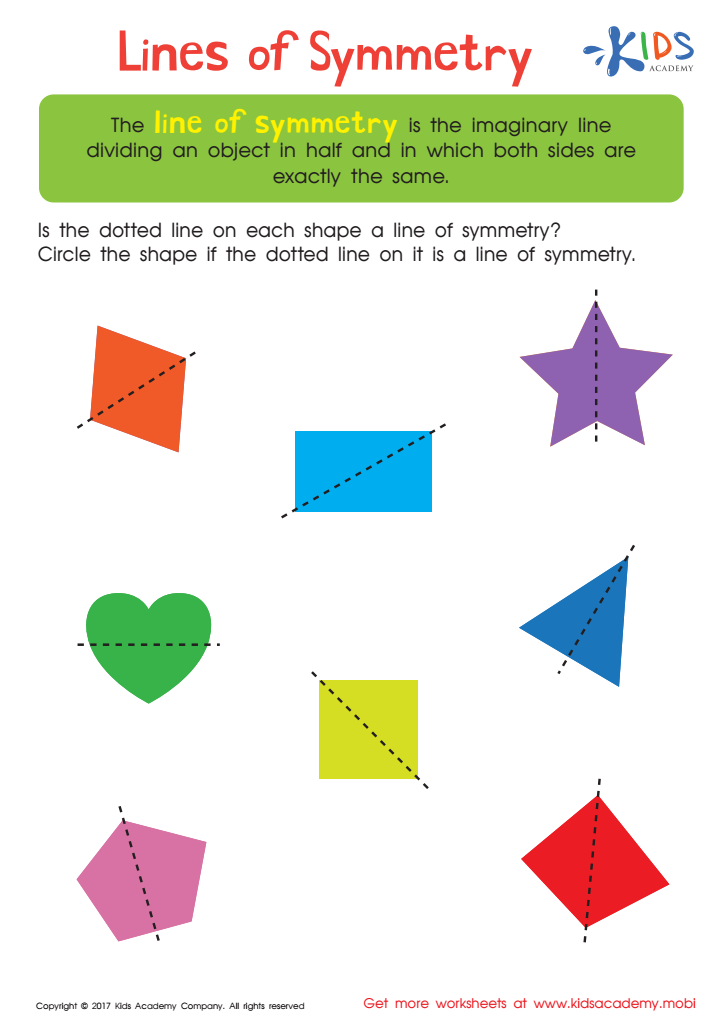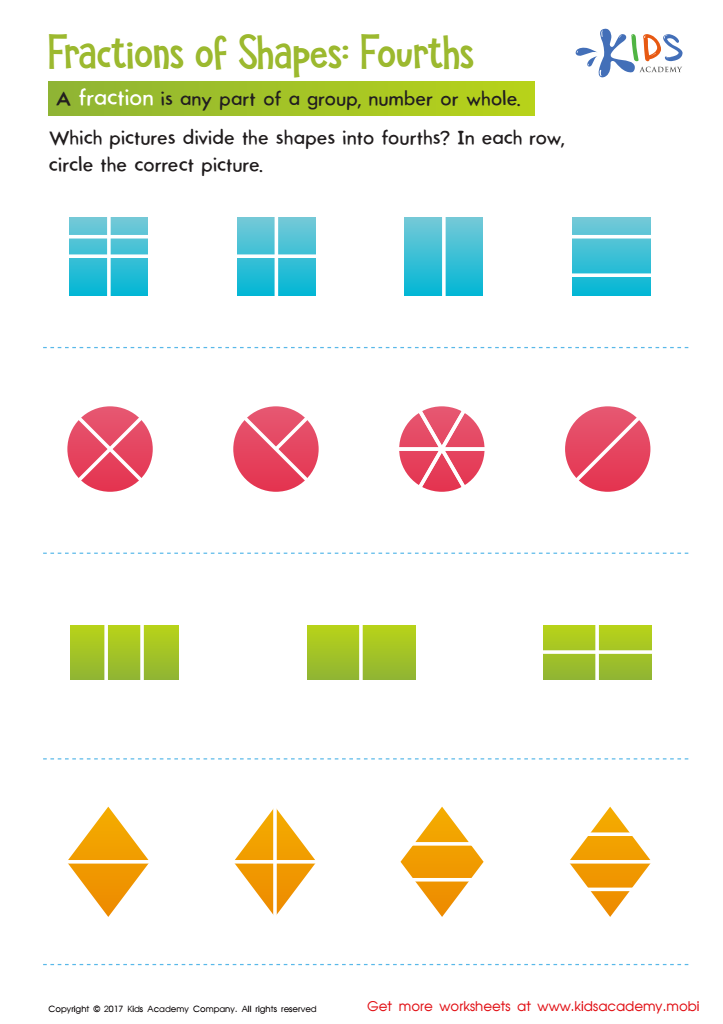Recognizing shapes Math Worksheets for 6-Year-Olds
3 filtered results
-
From - To
Develop your child's understanding of geometry with our "Recognizing Shapes Math Worksheets" designed specifically for 6-year-olds! These engaging worksheets introduce various shapes, including circles, squares, triangles, and more, fostering essential math skills through fun activities. Children will explore shape identification, comparison, and sorting while enhancing their critical thinking abilities. Our concentrated curriculum supports young learners in grasping foundational concepts, paving the way for future success in math. Perfect for home or classroom use, these worksheets provide a playful way to nurture your child's confidence and curiosity. Download now to spark their love for learning shapes and numbers!


Place Value: Assessment 1 Worksheet


Lines of Symmetry Printable


Fractions of Shapes Worksheet
Recognizing shapes is a foundational skill in early mathematics that plays a crucial role in the cognitive development of 6-year-olds. Understanding shapes is not just about labeling; it promotes spatial awareness and critical thinking skills. When children recognize and differentiate between shapes such as circles, squares, triangles, and rectangles, they develop the ability to analyze their surroundings, which enhances their problem-solving capabilities.
Additionally, recognizing shapes lays the groundwork for more complex mathematical concepts. For instance, it is essential for understanding geometry, measurement, and patterns. This foundational skill supports future learning in mathematics, making it vital for parents and teachers to emphasize.
In a broader context, engaging with shapes during early education fosters creativity and encourages observation skills. Whether through crafts or nature walks, recognizing shapes can be integrated into daily activities, reinforcing learning in a fun, interactive way. Furthermore, when children identify shapes in their environment, they develop a sense of confidence and achievement, which is instrumental in motivating them to explore further learning.
Thus, by prioritizing shape recognition, parents and teachers help children accumulate essential skills that are critical for academic success and overall cognitive development. Investing time in this area cultivates a strong mathematical foundation for lifelong learning.
 Assign to My Students
Assign to My Students
















